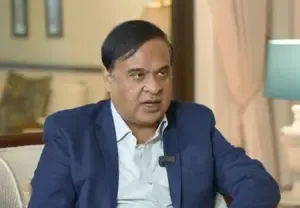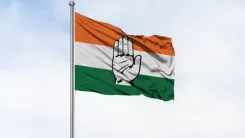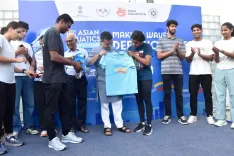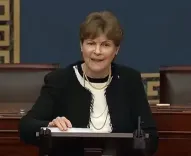Assam CM: Bold Initiatives by PM Modi and HM Shah to Reclaim Civilisational Heritage

Synopsis
Key Takeaways
- Central government under PM Modi and HM Shah is reclaiming civilisational roots.
- Key reforms include the abrogation of Article 370 and CAA.
- J.P. Nadda criticized the Congress's handling of the Waqf Act.
- New JPC facilitated extensive debate on the Waqf Act amendments.
- Democracy thrives on diverse perspectives and meaningful discourse.
Guwahati, April 3 (NationPress) The Chief Minister of Assam, Himanta Biswa Sarma, stated on Thursday that the Central government, led by Prime Minister Narendra Modi and Home Minister Amit Shah, has undertaken a series of courageous initiatives aimed at reaffirming the civilisational roots of Indian society.
In a post on X, CM Sarma expressed: "In yesterday's session of the Lok Sabha, Hon’ble Home Minister of India, Shri @AmitShah, convincingly showcased the strength and steadfast resolve of a New India under the visionary guidance of Hon’ble Prime Minister Shri @narendramodi. From the revocation of Article 370, the introduction of the Citizenship Amendment Act (CAA), the abolition of Triple Talaq, advancements towards a Uniform Civil Code (UCC), to the recent changes in the Waqf Act — this represents a bold and unapologetic reclaiming of our civilisational roots."
“India is on the rise, firmly anchored in its cultural confidence, and navigating its path with clarity, bravery, and conviction,” he further stated.
Separately, J.P. Nadda, Leader of the Rajya Sabha and Union Minister, criticized the Congress party for its management of the Waqf Act, alleging that the party had enacted the law in a manner that purportedly aided land mafias.
While speaking in the Upper House on Thursday, J.P. Nadda vigorously advocated for the proposed amendments to the Waqf Act, emphasizing the urgent necessity for reform to safeguard national interests and prevent the exploitation of Waqf properties, which should be dedicated to the welfare of impoverished Muslims.
Highlighting the national significance of the issue and the need for extensive discussion, J.P. Nadda referred to the establishment of a Joint Parliamentary Committee (JPC) under the government led by Prime Minister Narendra Modi.
This committee, consisting of 31 members, has facilitated over 200 hours of discussions on the bill.
He pointed out that this is in stark contrast to the JPC formed during the UPA administration in 2013, which had merely 13 members and lacked the same level of dedication.
J.P. Nadda claimed that democracy flourishes through meaningful dialogue and the incorporation of diverse viewpoints, rather than simply adhering to a single perspective.
Reinforcing its national importance and the necessity for focused discussion, the leader of the Rajya Sabha highlighted the establishment of a Joint Parliamentary Committee (JPC) under the leadership of PM Modi, which comprised 31 members and enabled a comprehensive 200 hours of debate on the Bill.
This, he noted, was a significant improvement over the JPC created during the UPA government in 2013, which had only 13 members and lacked the same commitment.
He emphasized that democracy thrives on rational discourse and the inclusion of various perspectives, rather than the mere acceptance of a singular standpoint.







